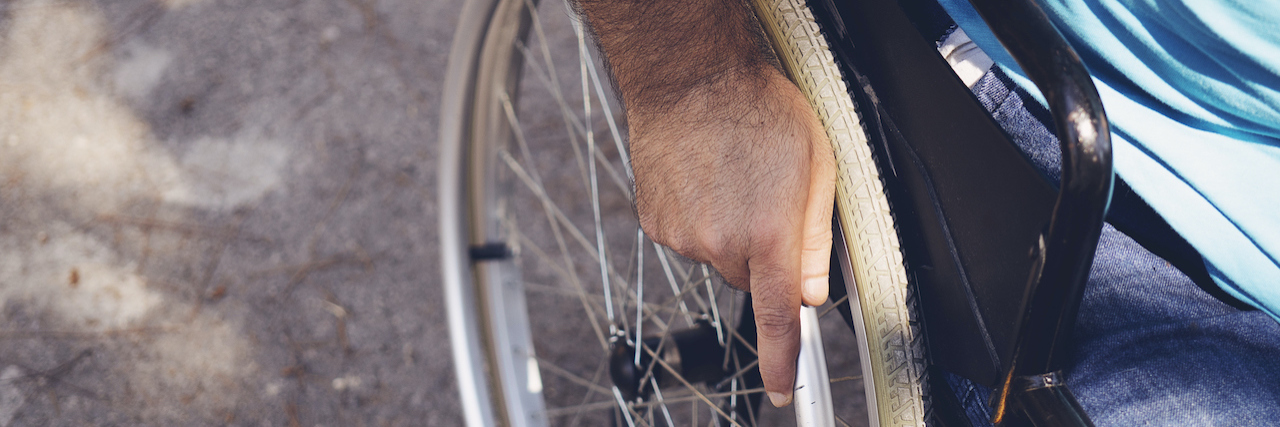Merriam-Webster’s definition of the word “ableism” is: “discrimination or prejudice against individuals with disabilities.”
This straightforward concept is much more nuanced in everyday life for people with disabilities.
Discrimination still happens far too often in blatant and subtle ways. It happens in the everyday world, within families and even in the disability community. It’s so powerful and far-reaching, disabled people can even apply ableist standards to themselves.
Because this can be even more stigmatizing and impeding now, during a pandemic, we asked The Mighty’s disability community to share how they’ve felt internalized ableism. The answers show we need more understanding, awareness and kindness all around us.
Here are some of the responses members shared:
1. Feeling like you don’t “fit in” to the disability community.
“As someone with a mild physical disability and mental illness, I don’t feel like I could have any sort of disability because I don’t fit the ‘part’ that society has taught us for what disability should look like.” — Rebecca G.
2. Feeling undesirable.
“I feel like the more my disability progresses, the less desirable I will be to connect with sexually and romantically. I know that’s not true and that my worth doesn’t decrease with changes in my physical ability, but those thoughts stemming from internalized ableism still come up.” — Mahala H.
3. Feeling like a burden.
“There are times where I believe I will not be an integral part of society, that I will forever be dependent on those around me and for that, I am a burden.” — Sam R.
4. Feeling like you’re “imagining” an illness, even though you know you’re not.
“I have an extremely rare and unusual disease that is hard for people to wrap their minds around, for which I’m constantly being accused of lying or exaggerating about. I’ve been told this so many times.” — Jen D.
5. Feeling “less than.”
“As a child and into my teen years, I have had this preconceived mindset that because I have a disability I will be looked at as less than others. To my shock, my mind was somewhat correct. For years that’s exactly how parts of society have treated me. I have always had to depend on others and it makes me feel worthless and useless. My social life is small. Can we get over our insecurities as society so that in turn our own internalized stigmas diminish? Please?” — Topher S.
6. Internalizing the inappropriate things people constantly say.
“’I don’t see anyone handicapped in that car.’ ‘Well, you don’t look sick.’ ‘Can you have sex?’ The list goes on…” — Morgan B.
7. Comparing yourself to other people.
“[I’m an] autistic man. I’m always feeling down because I don’t meet the neurotypical goals. My high school friends have careers, houses, children. I don’t, and it hurts.
8. Internalizing other people’s reactions.
“Sometimes I’m embarrassed to touch someone (shake hands) with my curled up fingers. Especially when I see them suppress or cringe.” — Colin S.
9. Taking cruel advice to heart.
“I had a psychiatrist tell me my mental illness was never going to get better and that it would be ‘best for all concerned’ if I hurried up and killed myself. It’s been 26 years. I still believe him more often than not.” — Collette S.
10. Feeling like you don’t “deserve” accommodations.
“Not being visually the profile expected for handicapped parking spaces. That they are only for the elderly/mobility aid users… ableist’s sideways glances never fail to disappoint.” — Nicole J.
“Not feeling like I can ask for supports because I don’t look ‘sick’ enough.” — Rebecca R. ·
11. Having low expectations of yourself.
“Disabled people frequently face the assumption that success/value and disability are mutually exclusive. We often deal with ‘low expectations’ or feel we have to lower our standards. I begin to feel like I am worthless or useless because it seems that is what people expect of me.” — Kellyann N.
12. Feeling like you have to “prove” you’re disabled.
“I feel like I have to use my wheelchair all the time to prove that I am disabled. Just because I can walk a little doesn’t mean that I am healed.” — Megan D.
If you can relate, you’re not alone. Tell us how you fight against internalized ableism in the comments below.
Getty image via batuhan toker

